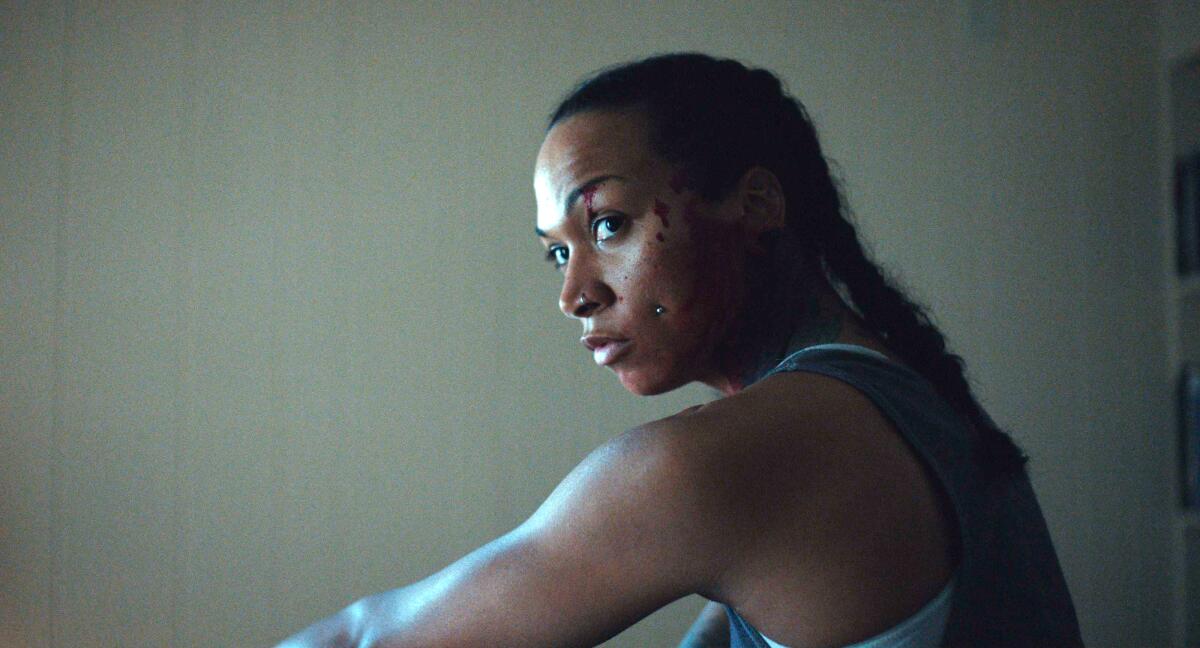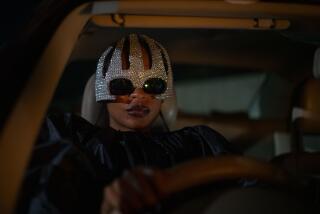‘Catch the Fair One’ fails to ask the hard questions about the missing and murdered

- Share via
“Nobody’s looking because nobody cares.” These are the words chillingly spoken by a character in Josef Kubota Wladyka’s newest film, “Catch the Fair One.” A sex trafficker who trades — with violent specificity — in Indigenous women and girls, the question the man answers with such hateful callousness is the whereabouts of a young Native girl. Looking for her is her older sister, Kaylee Uppashaw, a fighter who has seen better days, played here by world champion boxer Kali Reis.
Kaylee makes use of the shelter system, sleeping with a razor blade surreptitiously stored in her cheek, and waits tables at a dingy diner where she makes do with the leftovers off customers’ plates in place of proper meals. Before we learn of the disappearance of her sister Weeta (Mainaku Borrero), it is clear that there is a sadness in Kaylee — it is not just that she has survived, but that such endurance has come at a cost.
For your safety
The Times is committed to reviewing theatrical film releases during the COVID-19 pandemic. Because moviegoing carries risks during this time, we remind readers to follow health and safety guidelines as outlined by the CDC and local health officials.
Conceived by Reis and Wladyka, the story treads somewhat familiar generic ground. As Kaylee searches for her sister and the traffickers who stole her away, the boxer’s moments of wistful subjectivity are punctuated by narrative bursts of violence that are depicted with a bleak realism. Sparse in both its tone and undertaking, the movie, as it trails Kaylee on her search for vengeance, is patterned with reminders of the anti-Indigenous and gendered violence that too often shapes the lives of Native women and girls.
The men we witness Kaylee hunt down are mostly white and increasingly wealthy, possessing an air of respectability that seemingly distances them from the horrendous origins of their riches. They remind both her and us that the names of the women they kidnap and enslave don’t matter; that, to them, their lives are only a commodity — the heart of the family business. They are a fictive recognition of the thousands of missing and murdered Indigenous women and girls (MMIWG) across Turtle Island.
This is why “Catch the Fair One” ultimately disappoints more than it enlightens. It fails to ask not what are the means of its violence, but the effects, or even its transformative potential. With such a conventional approach on the level of story, style and form, it is almost too much to have such real stakes on the line — the solemn melancholia here threatens not only to engulf the film as a whole but also to confer to it some quite fatalistic implications. That “Catch the Fair One” can’t imagine more for its characters, for the world it shapes, is its most glaring fault, and one that will likely leave many taking a deep breath as the credits roll.
'Catch the Fair One'
Not rated
Running time: 1 hour 25 minutes
Playing: Starts Feb. 11, Nuart, West Los Angeles
More to Read
Only good movies
Get the Indie Focus newsletter, Mark Olsen's weekly guide to the world of cinema.
You may occasionally receive promotional content from the Los Angeles Times.










